Almost one hundred years ago, the groundbreaking discovery of penicillin, the first class of antibiotics, marked a momentous break from the dark ages of sickness and death, where a simple prick from a twig, a minor burn from a hot surface, or an occasional itchy throat was all it took to eradicate entire populations of early settlers. While antimicrobial drugs deserve their due credit for extending the average lifespan of humans all over the world, in countries like Pakistan, where a lack of regulation in the prescription and sale of medications allows people to pop antibiotic pills like candy, the pivotal cure offered by medical science might sooner or later, turn into an irrevocable curse.
Despite the Drug Regulatory Authority of Pakistan (DRAP) announcing efforts to curb the illegal sale of medications throughout the country, the over-the-counter availability of antibiotics alongside the lack of accountability of doctors has resulted in the rampant self-medication and over-prescription of the antimicrobial drugs, which slyly lead millions of patients and their loved ones to poorer health prospects, one pill at a time.
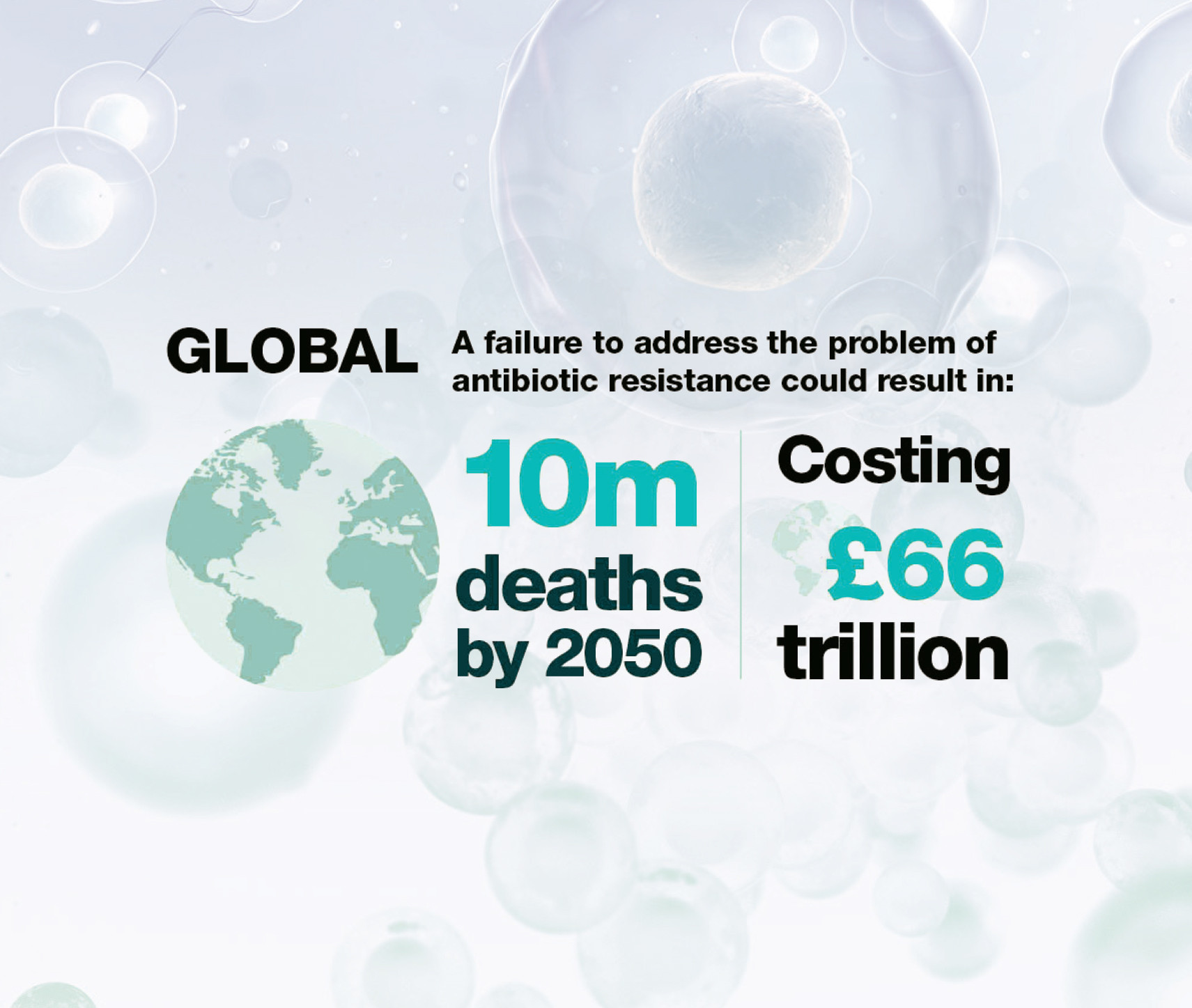 Antibiotic-dependent nation
Antibiotic-dependent nation
Take the case of Tahir Khan, a local from Peshawar, who caught a seasonal cold and instead of consulting a doctor or waiting it out, started taking 500-milligramme tablets of azithromycin on the casual recommendation of a friend. “For illnesses like the common cold or flu, people in my social circle do not bother spending thousands of rupees on a doctor’s consultation,” reveals Tahir, who innocently believed that antibiotics were the perfect cure for any illness, even those instigated by viruses.
"During the pandemic, I developed a fever, flu and cough,” says Ajmal Khan, a local from Karachi, whose daughter had to be rushed to the hospital for immediate allergy treatment.
“I went to a pharmacy and bought several suspensions and tablets of cefixime. Thereon, I administered the antibiotic to anyone in the house who developed similar symptoms, including my teenage daughter. Soon after, my daughter started complaining of body aches and red spots appear all over her body,”
Knee-jerk reaction
Unlike Tahir and Khan, who were self-medicating antibiotics, doctors gave Muhammad Ijaz, a patient from Lahore, antibiotics unnecessarily without testing for the presence of a bacterial infection. “After I suffered a leg injury, the doctors started giving me antibiotic injections and tablets without running any tests to check for infection,” shares Ijaz. “In no time, I started experiencing severe gastrointestinal issues alongside spells of depression.”
“Doctors are overprescribing antibiotics while people themselves are also self-medicating on fourth-generation penicillin,” confirms Muhammad Arjumand, a pharmacist in Lahore. “Therefore, the demand for antibiotics in medical stores has increased manifold in recent years and the pharmaceutical sector has transformed into a billion-dollar industry.”
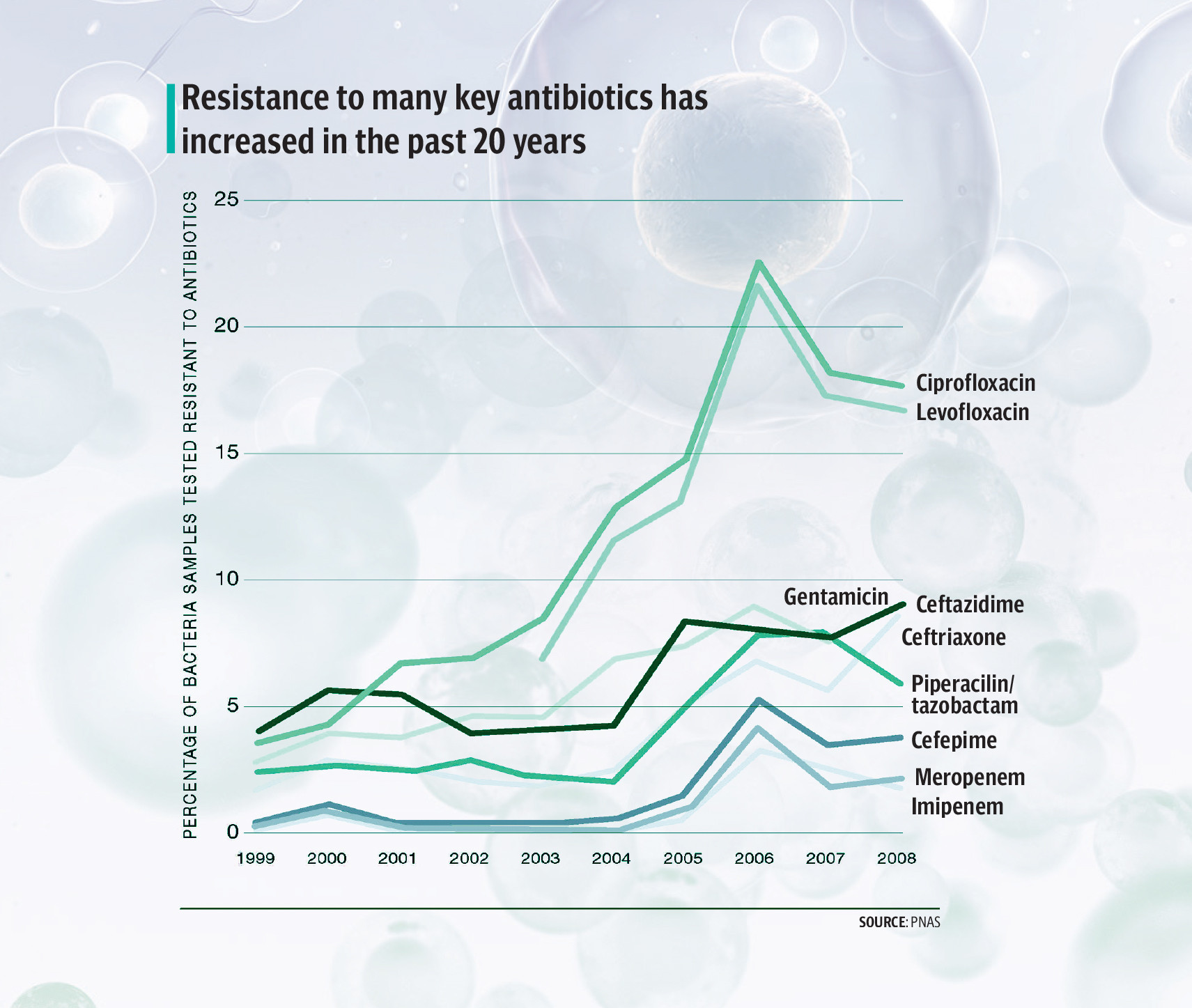
Rising sales of antibiotics
According to data obtained by the Express Tribune, the yearly sales of antibiotics in the country have risen by a whopping 35 per cent every year. An analysis of the top 50 medications sold in Pakistan during 2022 and 2023, revealed that amoxicillin was the third most sold medication in the country with the total value of its sales reaching Rs19 billion and 67.4 million, followed by cefixime, which generated Rs18 billion and 916.8 million through sales, clavulanic acid which was sold for Rs14 billion and 511.7 million, ciprofloxacin which generated Rs13 billion and 67.8 million in revenue and azithromycin whose sales touched Rs9 billion and 493 million. Moreover, the combined sales of top 15 antibiotics touched 245 million in 2023.
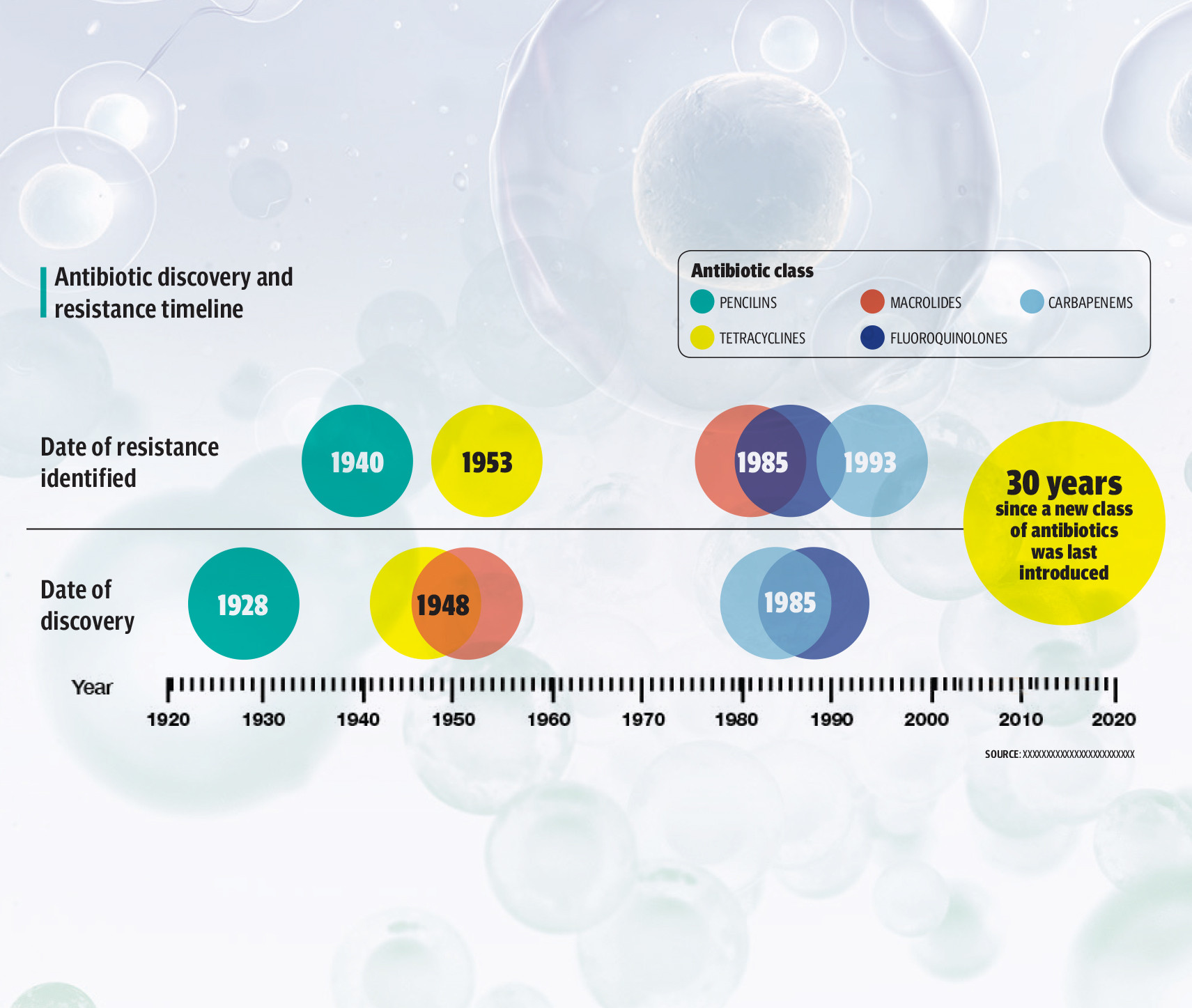
Self-medication
Self-medication of any drug be it an analgesic, soporific pill or even antibiotic boils down to the ease with which a person walking into a pharmacy can purchase a required dosage of the drug. For this very purpose, medications have been divided into over-the-counter and prescription-only drugs, with antibiotics falling into the latter category, to ensure that the grave side effects of a potential overuse can be evaded. Regrettably, the global standard practice for ensuring responsible pharmaceutical sales fails to apply in Pakistan, where the easy availability of antibiotics without a prescription across medical stores in the country, covertly facilitates self-medication.
“In our country, antibiotics are sold openly without a prescription since no legislative ruling exists to mandate the sale of antibiotics through a doctor’s prescription only,” affirms Dr Obaid Ali, a Karachi-based expert in pharmaceutical science. “Furthermore, many medical stores are run by people who are not qualified pharmacists,” adds Wasif Ahmed, a pharmacist in Karachi. “This explains how the public heavily self-medicated with antibiotics during the Covid-19 pandemic.”
Diving into the reasons behind the self-medication of antibiotics, Yasar Mehmood, a public health expert believes that limited access to the healthcare system alongside financial constraints forced low-income groups to take medications without consulting a doctor.
Whilst acknowledging the hassle of seeking medical help at a public healthcare facility, Dr Basmaa Ali, Professor at the Harvard Medical School and Resident Scientist at the Lahore University of Management Sciences (LUMS), also feels that self-medication and overuse of antibiotics could be attributed to untreated anxiety.
“Fifty-five per cent of patients who visit the Emergency at the Services Hospital in Lahore are diagnosed with untreated anxiety. Untreated anxiety can also lead to self-medication of antibiotics,” she claims. “A person experiencing heightened anxiety might interpret common physical symptoms like headaches or stomach discomfort as signs of a serious bacterial infection leading them to self-prescribe antibiotics without consulting a healthcare professional. This behaviour stems from the desire to alleviate their distress rapidly rather than addressing the underlying anxiety.”
Untreated anxiety can amplify the urge for self-medication with antibiotics due to societal pressures and personal expectations. For instance, individuals facing anxiety-related challenges may feel compelled to maintain their daily routines and productivity levels. “In such cases they may resort to self-medication with antibiotics to suppress any perceived physical symptoms that could hinder their performance, thereby exacerbating the cycle of anxiety-driven self-medication,” affirms Dr Rafia Rafique, Professor of Applied Psychology at the University of Punjab. “This pattern highlights the importance of identifying and addressing underlying mental health concerns to prevent the misuse of antibiotics and promote holistic well-being.”
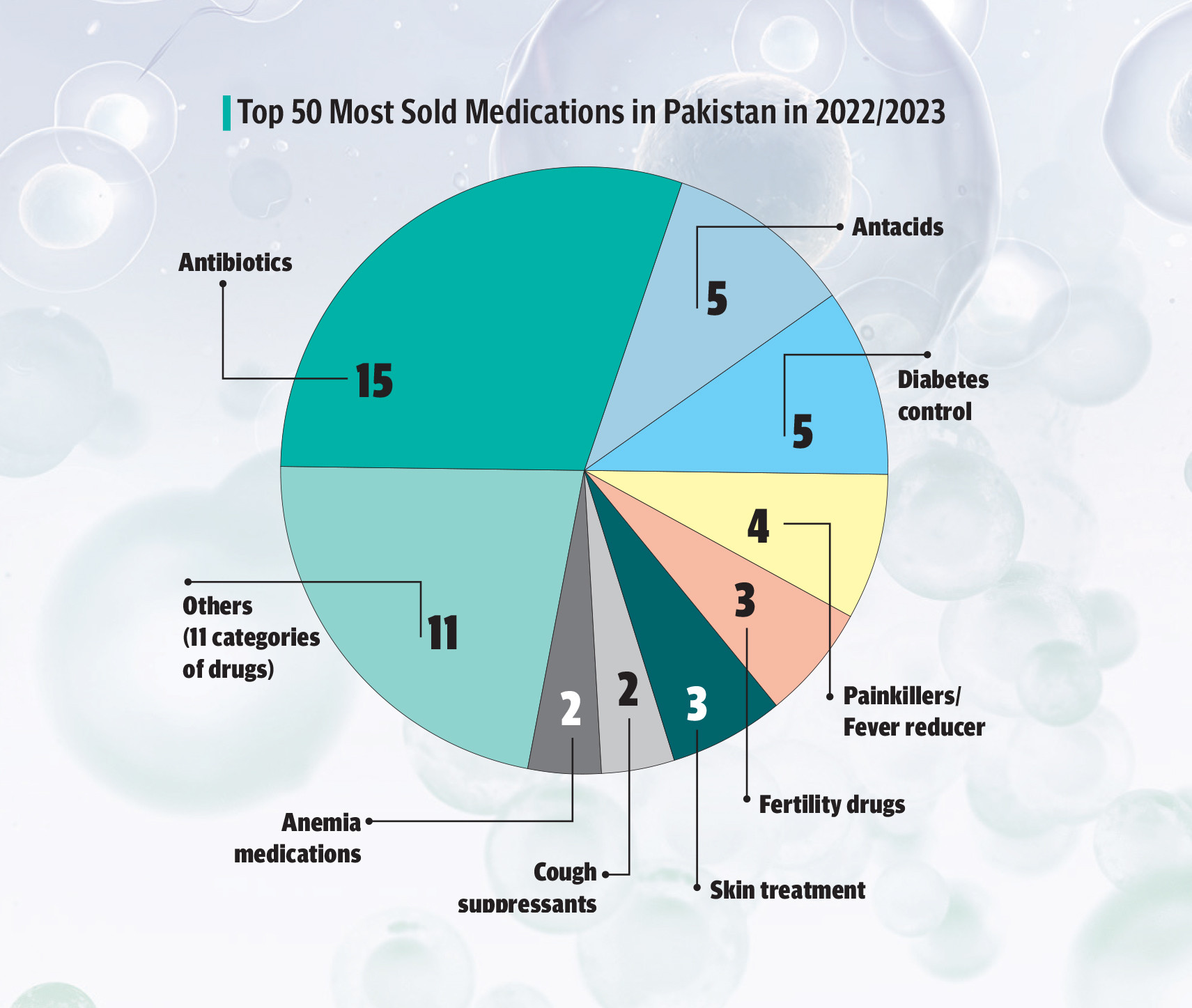
Over-prescription
Unlike the palpable air of demurral surrounding self-medication, the over-prescription of antibiotics by qualified medics appears to lie in a grey zone in a society which, in likening error-prone doctors to life-saving angels, removes any doubt on the veracity of their diagnosis or treatment plan. “Patients are generally hesitant to question the doctor’s judgment over the prescription of drugs since they fear that the doctors will feel challenged and will scold them,” says Dr Seemab Javed, a physiologist at the Lady Reading Hospital Peshawar.
According to Dr Ahmad Zaib, a medical officer at the Khyber Teaching Hospital in Peshawar, a doctor’s diagnosis of a bacterial infection and decision to prescribe an antibiotic is based on the medical history of the patient, which includes the clinical presentation, duration and severity of symptoms, risk factors, epidemiological factors among other guidelines and protocols. “Certain signs and symptoms may strongly suggest a bacterial infection,” he says. For example, a high fever, severe sore throat, difficulty breathing, or a productive cough might indicate a bacterial respiratory infection, which requires antibiotics. Similarly, if the symptoms are severe and persistent, or the person has compromised immunity due to some other health condition, a bacterial infection might again be suspected.”
“Similarly, if a patient shows signs and symptoms of a lung, skin or urinary tract infection
(UTI), an antibiotic might be required. A detailed history taking by a good doctor is usually all that is required to gauge the need for an antibiotic yet most doctors in the country simply rush through a checkup or avoid it altogether,” regretted Dr Basmaa.
“Additionally, laboratory tests are also ordered before prescribing antibiotics in several countries across the world,” adds Noor Mehr, President of the Pakistan Drug Legal Forum. “Unfortunately, this practice is non-existent in Pakistan.”
While the growing workload on doctors can partly justify rushed diagnoses, the following revelation might help further explain doctors’ reluctance to confirm the presence of a bacterial infection. “Underhand contracts between medical professionals and pharmaceutical businesses are fairly common,” Mehr discloses. Doctors are rewarded for prescribing a target number of medications including antibiotics to their patients in return for international trips, cars and other gifts. This explains why antibiotics are prescribed unnecessarily in Pakistan.”
Such medical malpractice reflects in data which gives a mere glimpse of the kind of harm the unethical prescription of drugs like antibiotics can entail. “Studies have shown that 60 per cent of deaths reported in the country occur due to poor quality medical care while only 40 per cent occur as a result of access to no medical care,” says Dr Basmaa.
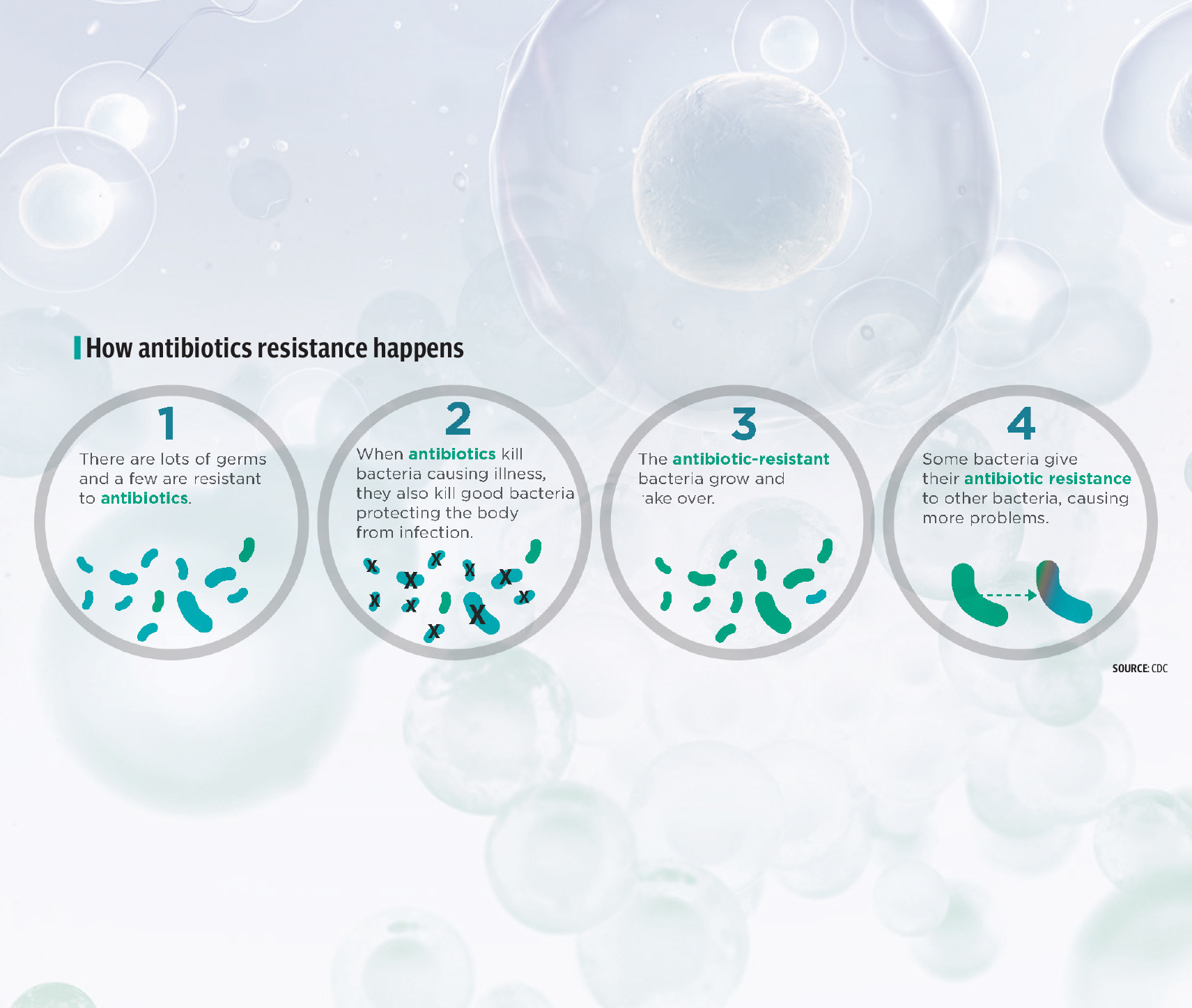
Hazards of overuse
Contrary to the popularly held notion that all bacteria are bad, the human body is naturally colonised by billions of microbes, which line epitheliums in the body comprising the microbiome, some of which actually play a crucial part in its healthy functioning. Therefore, when antibiotics are taken unnecessarily, the beneficial bacteria lining epitheliums in the body are abruptly swept away, exposing the person to more serious health issues.
“Thirty-nine trillion microbes live within the human body,” highlights Dr Basmaa, “which includes good and bad bacteria. Good bacteria, which are present in the mouth, nose, gut, female genital tract and on the skin, help the immune system decide whether an invading pathogen is a friend, foe or neutral. Moreover, the good bacteria also provide competition to the bad bacteria and prevent infections.
Unnecessarily taking antibiotics kills the good bacteria in the body, which reduces the body’s natural immune response, exposing it to more serious infections. The damage to the microbiome caused by a two-week course of antibiotics takes years to recover. Also, antibiotic resistance is another long-term repercussion of antibiotic overuse.”
According to the Centre for Disease Control and Prevention (CDC), antibiotic resistance occurs when targeted bacteria develop the ability to defeat the antimicrobial drugs designed to kill them, as a result of which resistant infections are impossible to treat.
“Given the rate at which people in the country are overusing antibiotics, it worries me to imagine that one of these days a serious resistant disease might break out in the country,” she adds. “Therefore, antibiotics should only be reserved for more serious infections. Common illnesses like the cold or sore throat do not require antibiotics since they usually resolve on their own with adequate rest and antipyretics. When it comes to people who have taken antibiotics, fermented foods like yogurt, kanji and oil and vinegar-free pickled vegetables must be regularly consumed for restoring the microbiome and rebuilding immunity.”
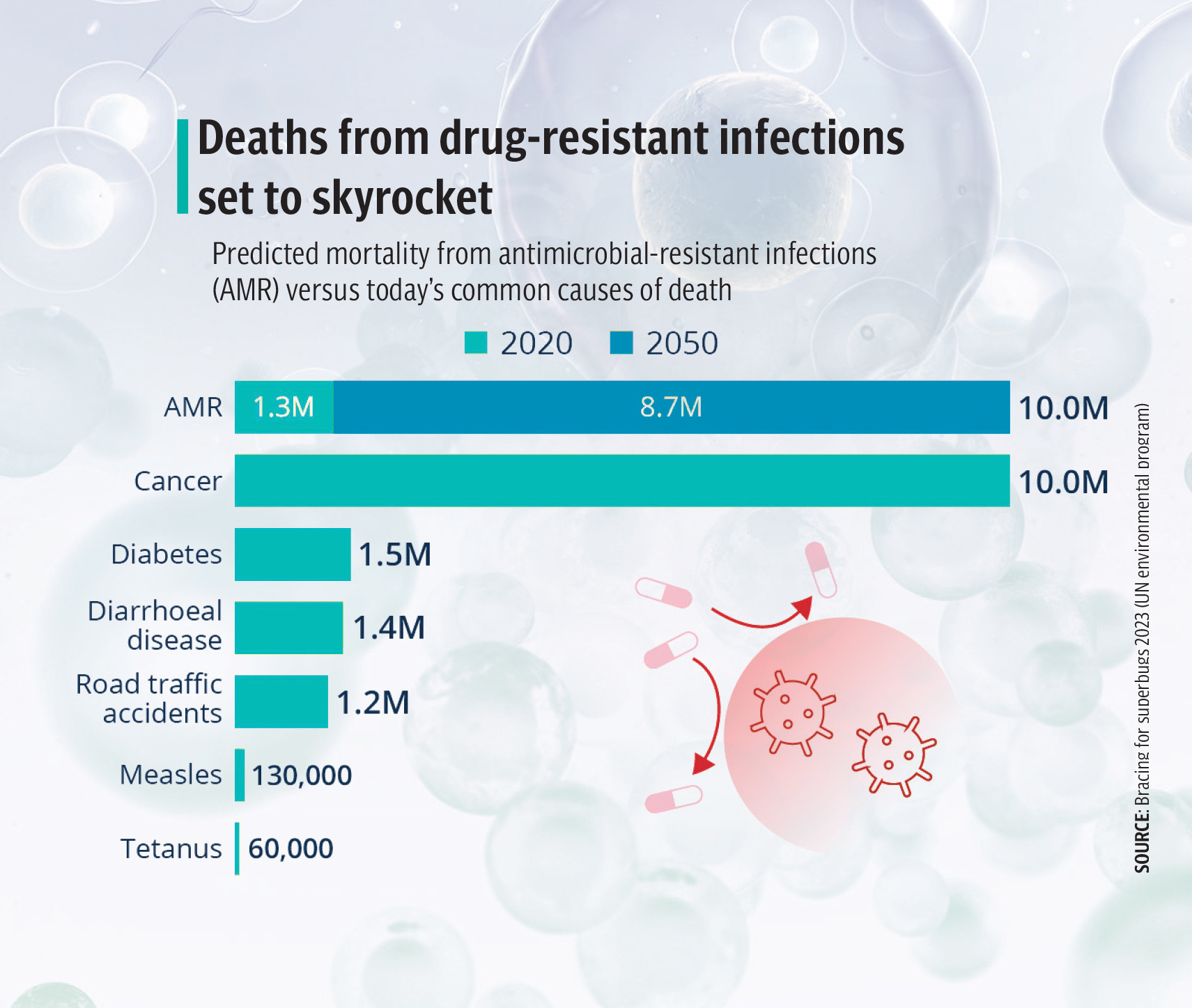
Building immunity in childhood
After learning of all the hazards associated with antibiotic overuse, the first and foremost question that might intrigue any person would be: How can I save my loved ones and future generations from requiring antibiotics in the first place? The key answer lies in prioritising childhood immunity.
“Right from the moment of birth, the baby’s immune system starts performing its fundamental duties of warding off infection,” explains Dr Basmaa. “The time it requires to properly develop the child’s immune system depends on the mode of delivery. Children born naturally have a fully functional immune system by the age of one and a half years while those born through a Caesarean section might not develop the same level of immunity by the age of eight. The current high incidence of Cesarean births in the country has led more children to develop a weakened immune system causing them to require antibiotics frequently.”
Her claims were supported by the findings of a research paper published in the notable scientific journal, Frontiers in Microbiology, which indicates that children born through a Caesarean section were deprived of the exposure to essential uterine and vaginal microbes, which promoted the development of their immune systems. This prolonged their postnatal immunological immaturity, exposing them not only to the risk of various infectious and immune diseases but also to developing chronic health conditions like asthma, food allergies, childhood onset diabetes and obesity.
“In addition to preferring natural births, parents should ensure that antibiotics are not given to children before the age of five since their immune system is still developing,” suggests Dr Basmaa. “Doing so can significantly decrease their temporary and long-term immune function.”
Way forward
“In order to curb the overuse of antibiotics, they must be made a prescription-only drug while the inappropriate over-prescription by doctors must also be brought under the radar,” recommends Mehmood. “The state must also ensure that only qualified pharmacists run medical stores since a large number of patients seek help for minor health issues at a pharmacy,” concludes Dr Basmaa, adding that “Antibiograms, which show the efficacy of various antibiotics against classes of bacteria, must also be made easily available so that patients can hold doctors accountable.”
Our masses are blatantly uneducated about the functioning of their own bodies. This is partly because biology is not a compulsory subject in high school. Therefore, our national curriculum must be updated to include a compulsory self-care course for matriculation students, which gives them fundamental knowledge of human biology especially with regards to their circulatory, digestive, respiratory, excretory, reproductive and immune systems so that they are better aware of the pitfalls of antibiotic overuse.
